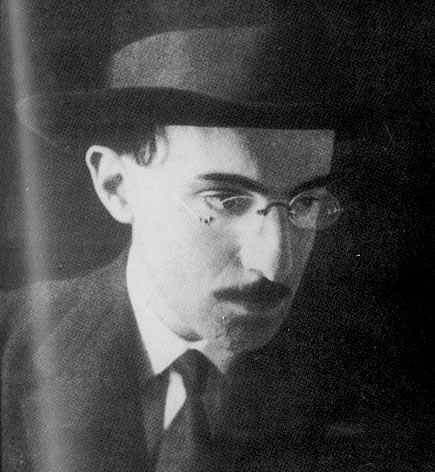“For I am the size of what I see
not my height's size.”
Attributed to the Caeiro alter ego, in A Factless Autobiography, Richard Zenith Edition, Lisbon, 2006, p. 71
The Book of Disquiet
Original: Porque eu sou do tamanho do que vejo
e não do tamanho da minha altura.
